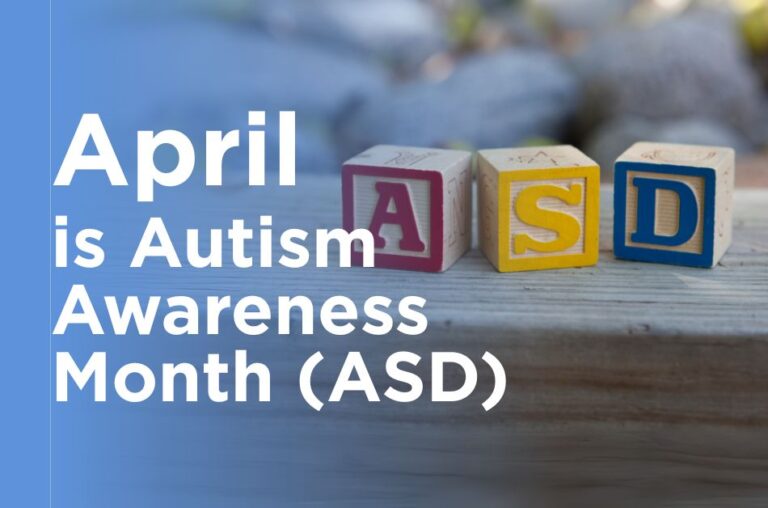
April is recognized as Autism Awareness Month, a time dedicated to increasing understanding, acceptance, and support for individuals with Autism Spectrum Disorder (ASD).
Autism spectrum disorder (ASD) is a neurodevelopmental condition that affects communication, behavior, and social interactions. The term “spectrum” reflects the wide range of strengths and challenges individuals with autism may experience. Some common characteristics of ASD include:
- Difficulty with verbal and nonverbal communication
- Challenges in social interactions and forming relationships
- Repetitive behaviors or restricted interests
- Sensory sensitivities, such as heightened or diminished reactions to sounds, lights, or textures.
ASD is diagnosed in early childhood, though signs may be apparent as early as infancy. While the exact cause of autism is still being researched, it is known to involve a combination of genetic and environmental factors.
In 2020, 1 in 36 U.S. children are diagnosed with ASD, a figure that has surged by 317% since 2000.
How is ASD screened?
The Modifier Checklist for Autism in Toddlers, Revised with Follow-Up (M-CHAT-RF) can be administered and scored as part of a well-child visits to assess risk for ASD. The primary goal of the M-CHAT-RF is to maximize sensitivity, meaning to detect as many cases of ASD as possible. The M-CHAT-RF consists of 20 yes/no questions about the child’s behavior, the M-CHAT-RF is designed to help the provider determine if further evaluation is needed.
At Greater Family Health children are screened with the M-CHAT-RF at their 18-month well-child visit and their 24-month well-child visit.
The Medical Assistant (MA) is responsible for giving the patient’s parent the M-CHAT-FR via the Phreesia tablet. Phreesia will score and transfer the completed M-CHAT-RF to the patient’s chart for provider/MA review. The MA is responsible for entering score in the appropriate location in NextGen. The Medical Assistant then communicates the results with the provider.
At the 18-month well-child visit, if the patient scores positive for low risk, the patient will be screened again at the 24-month well-child visit. If the patient scores positive for medium or high risk, the provider will refer the patient for diagnostic evaluation to developmental pediatrics and to early intervention.
Patient will be screened at the 24-month well-child visit, regardless of score on the 18-month well-child visit. Provider will follow up or refer as needed.
Greater Family Health has a structured approach to help facilitate early diagnosis, through early autism screening as part of their well-child visits, and access to crucial developmental support for children at risk.




